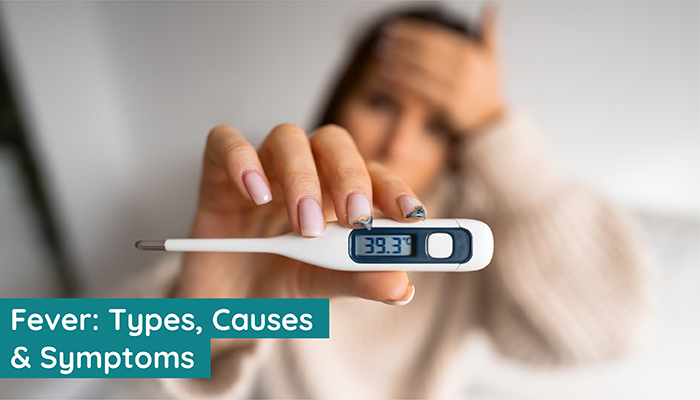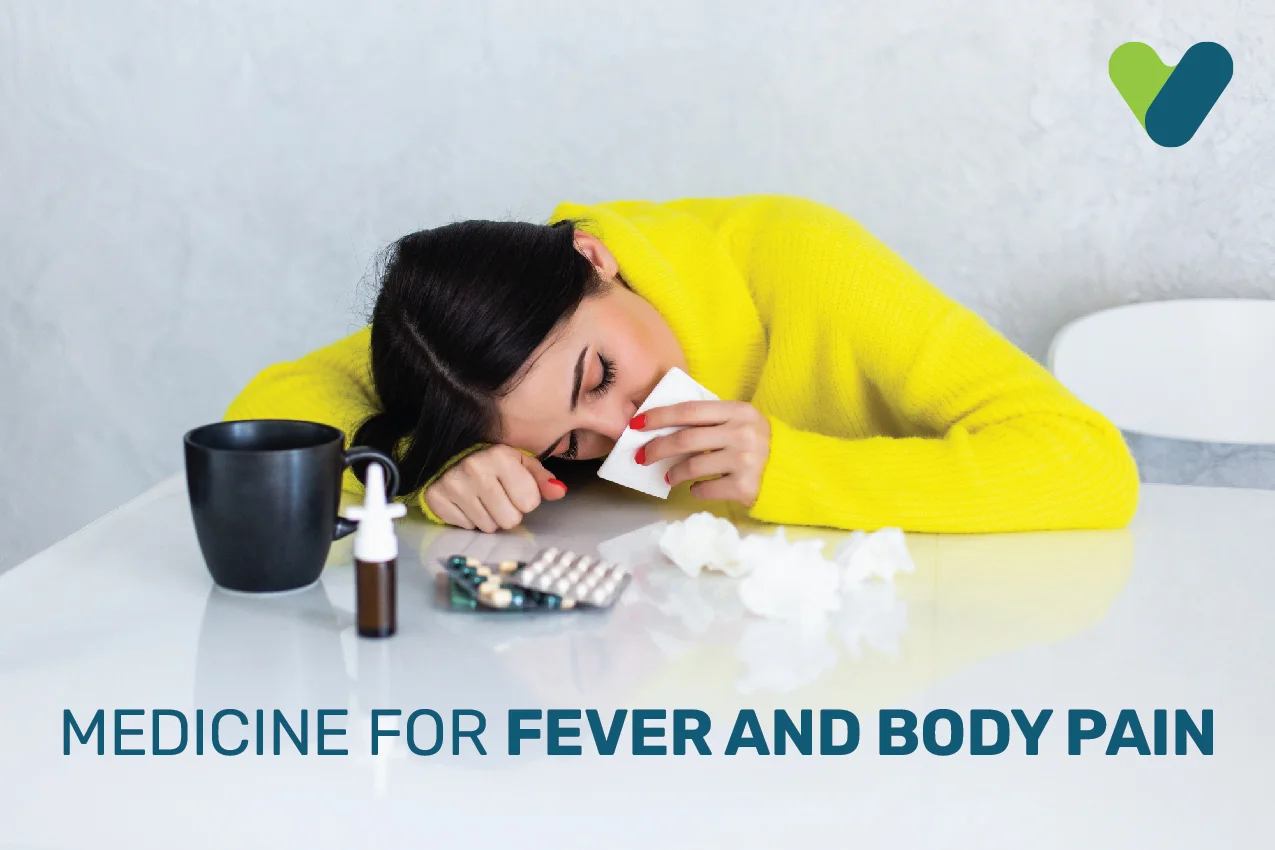Fever is the response of the human body's immune system to an infection, resulting in a higher-than-normal body temperature. An average body temperature ranges between 97° Fahrenheit (36.1°Celcius) and 99° Fahrenheit (37.2°Celcius). You contract a fever when this temperature increases to 100° F or 40°C and above. The degree of severity depends on the rise in temperatures and differs on your age.
Types of Fever
Fever differs based on the causes, severity, and the patient's age. Some of the common types of fever are as below.-
- Intermittent Fever When your body temperature is inconsistent, it is known as intermittent fever. In this condition, you may have a high fever during the day, while your temperature may be low at night. Such a fever results from bacterial infection and is further categorised as quotidian, tertian, and quartan fever, depending on the intensity.
-
- Remittent Fever Remittent fever is when body temperature remains consistently high, irrespective of day or night. It also fluctuates by more than 1°C every few hours. The condition results from bacterial infections like typhoid, infectious mononucleosis, brucellosis, etc.
-
- Sudden Fever Sometimes, the temperature rise is not constant. Your body may experience a high temperature suddenly due to tiredness, fatigue, headache, body ache, etc. This condition makes you feel feverish, but is mostly temporary.
-
- Relapsing Fever This condition occurs when your body temperature spikes after a few days or weeks of being normal. It commonly happens with underlying infections like malaria.
Common Symptoms of Fever
You may notice the following bodily signs when you have a fever:- Excessive sweating
- Chills and shaking
- Weakness
- Body ache
- Dehydration
- Loss of appetite
- Flushed face and hot skin
- Vomiting
Causes of Fever
The primary reasons leading to fever are as follows:- Viral infections
- Side effects of specific medications
- Hyperthyroidism
- Heat exhaustion
- Inflammatory conditions like rheumatoid arthritis
- Immunisation shots like tetanus, diphtheria, acellular pertussis (DTaP), etc.
- Infections targeting organs like ears, throat, lungs, bladder, and kidneys.
- Teething in babies
Severe Complications Resulting from Fever
Some of the extreme complications of fever are as follows.- Hallucinations When you have a severe fever, the brain cells become hyperactive and respond differently to stimuli. The could result is minor episodes of hallucinations.
- Seizures Usually prevalent in children aged between six months to five years, a febrile seizure is one of the common complications of severe fever. It causes loss of consciousness, muscular tension, twitching, etc.
- Dehydration The fluid requirement of your body increases when you feel feverish. When you fail to meet it, your lips and mouth area becomes dry, the urinary function becomes irregular, and begin to feel lethargic.
How to Take a Fever Temperature?
You can go through these steps to check your fever temperature. 1. Clean the tip of the thermometer with cold water and rinse it thoroughly. 2. Place the thermometer in your mouth, underarms, or ear. For infants, you can also insert the thermometer in the rectum to check for baby fever. 3. Wait for about 30 seconds. If your thermometer alerts through a beep, wait until you get the signal. 4. Record the temperature reading and repeat the procedure a few times to assess the progress. 5. After checking the temperature, clean the thermometer for future use.When Should You Visit The Doctor For Fever Treatment?
The body's immune system fights back, and the condition subsides when the temperature rises minimally. But if you notice the following signs, you should make haste and visit your doctor. In Adults:- Persistent headache
- Unusual reaction to bright light
- Increased mental irritability that interferes with accomplishing daily tasks
- Pain while urinating
- Recurring episodes of vomiting
- Body rash
- Breathing difficulties
- Confusion or inability to maintain eye contact
- Loss of appetite for longer than usual
- Irritable digestive condition
- Seizure attack
- Fever lasting for days
- If the rectal temperature increases above 100.4°F in babies younger than three months.
- When the rectal temperature is higher than 102°F with signs of irritability, discomfort, and sluggishness in infants aged between three months to six months.
- Rectal temperature above 102°F accompanied by a runny nose, nausea, cough, and other concerning symptoms in babies aged between seven to 24 months.
Practices to Prevent the Occurrence of Fever
Here are a few measures you can take to prevent the occurrence of fever.- Wash your hands thoroughly for at least 20 seconds before and after eating.
- Avoid touching your face area. Stay safe and protect yourself from infections in public places.
- Cover your mouth and nose when you sneeze, cough or encounter someone doing the same.
- Change habits like sharing your glass, cup, and other utensils with others.


